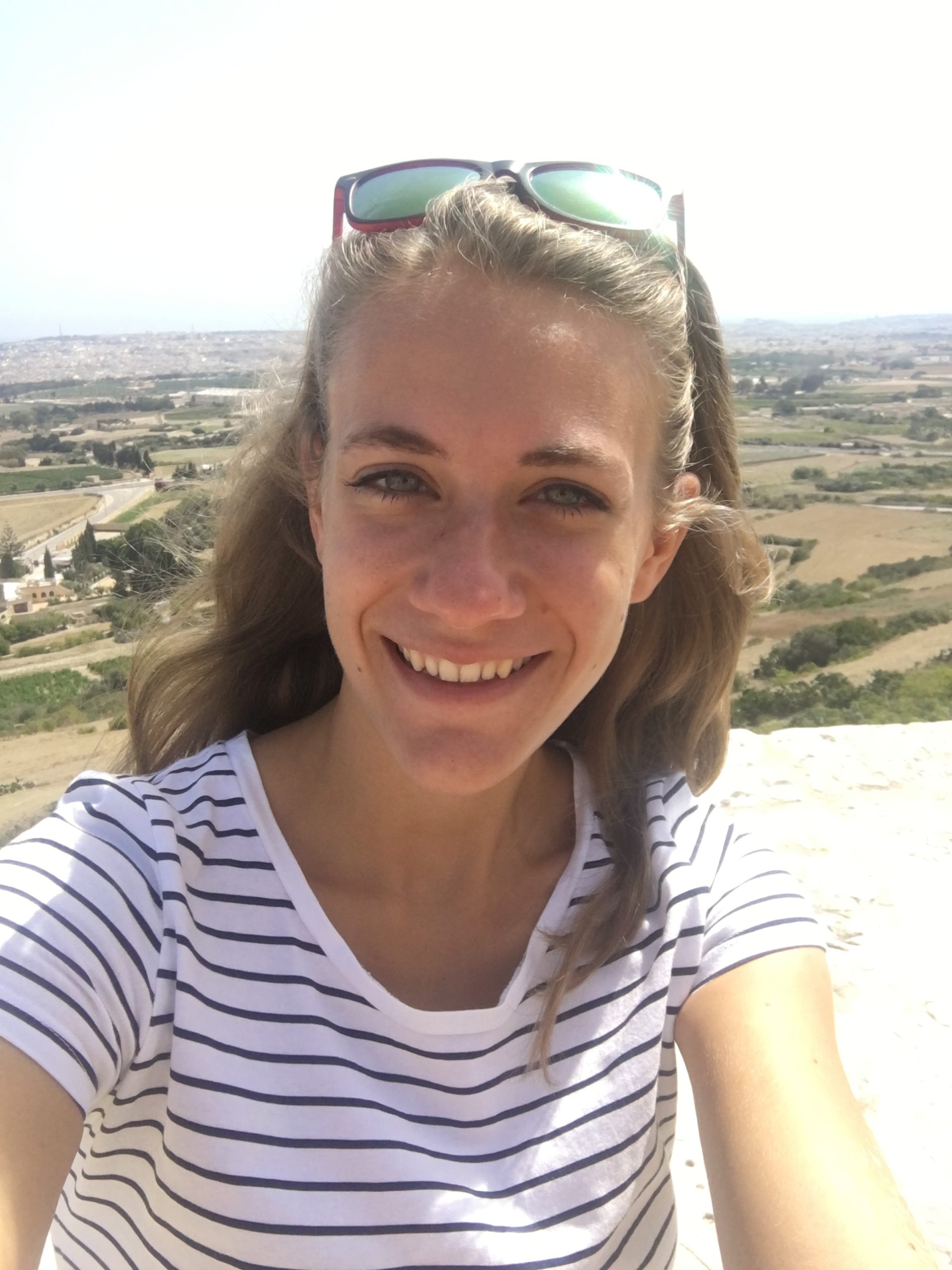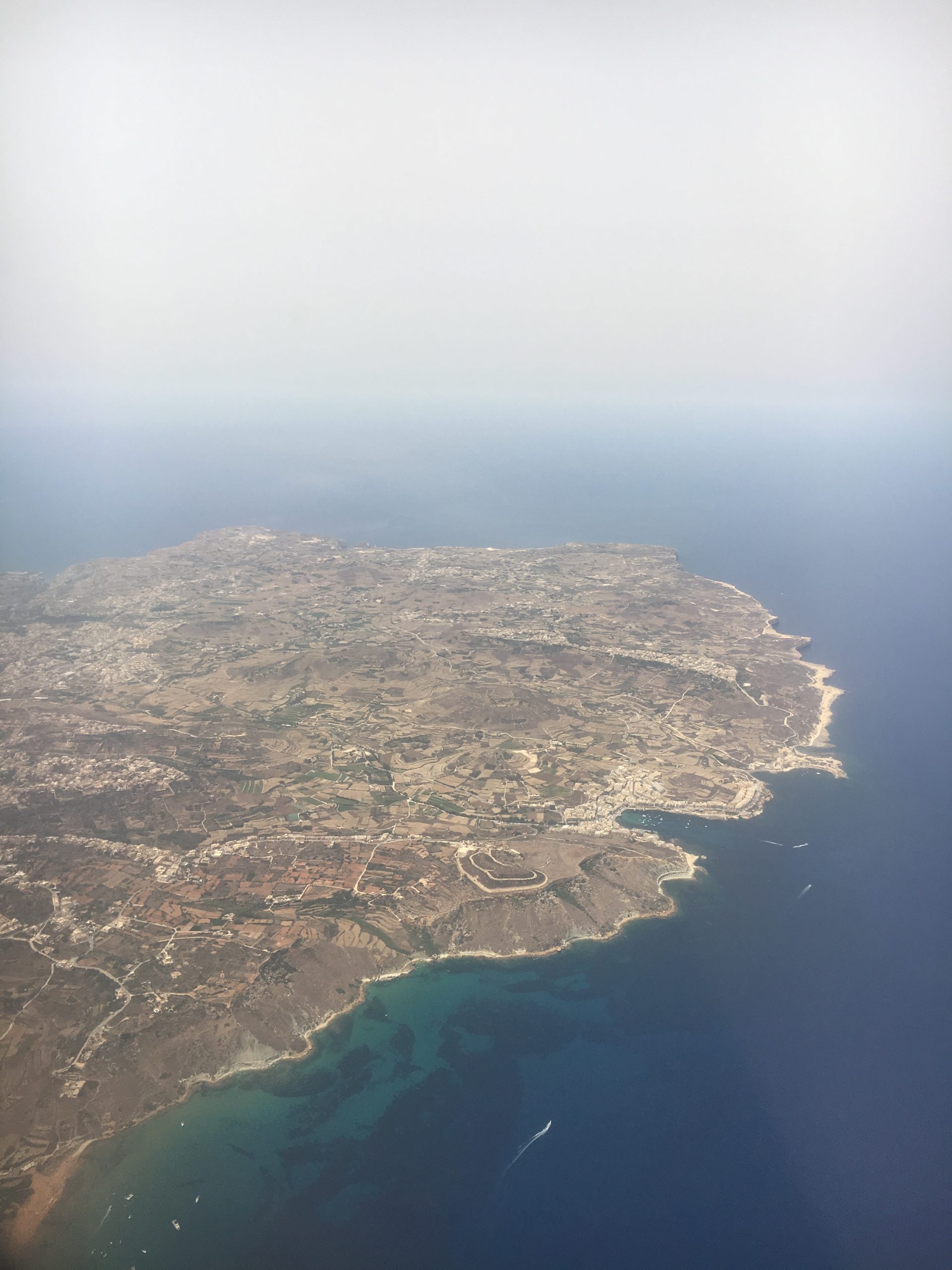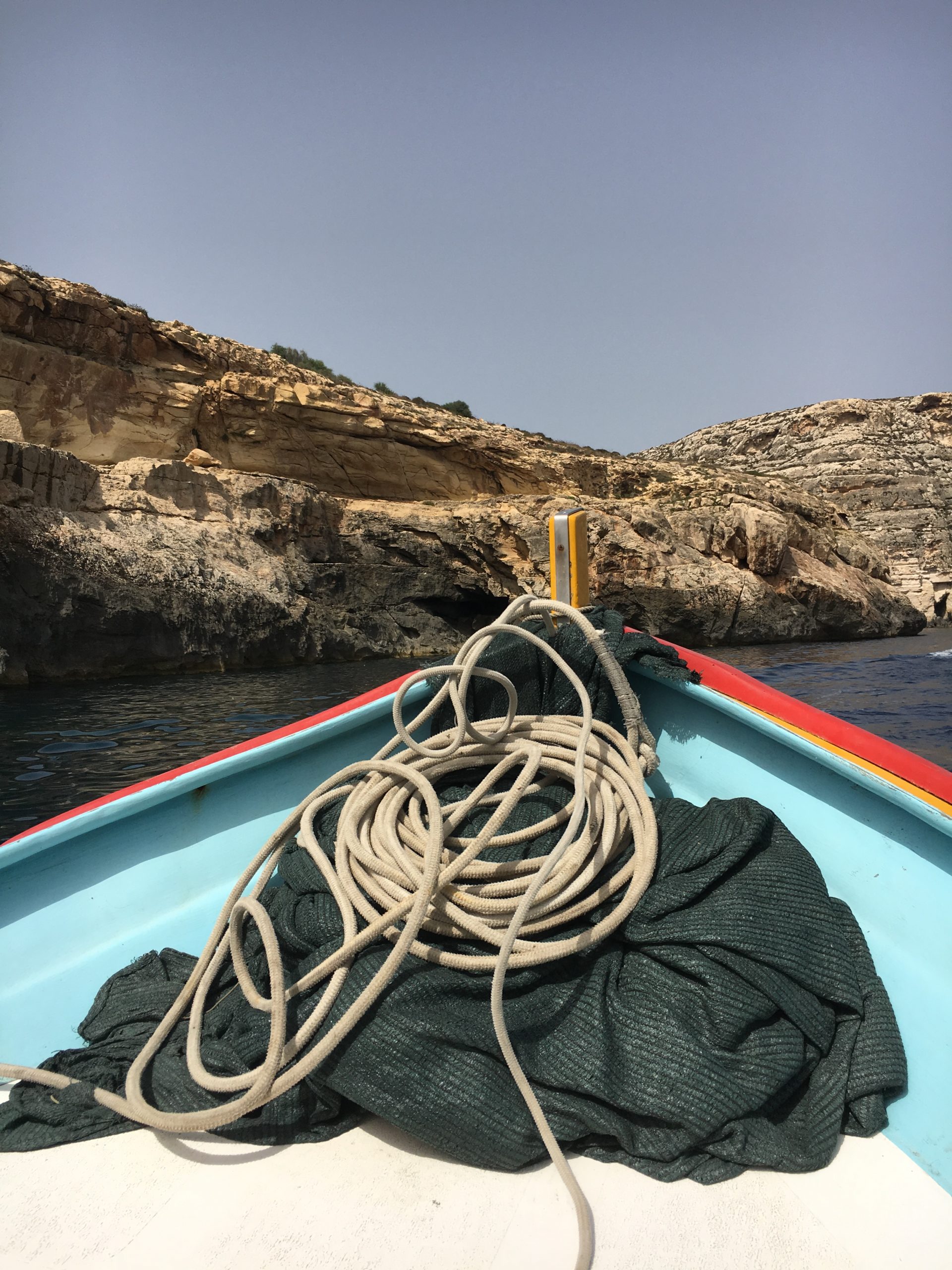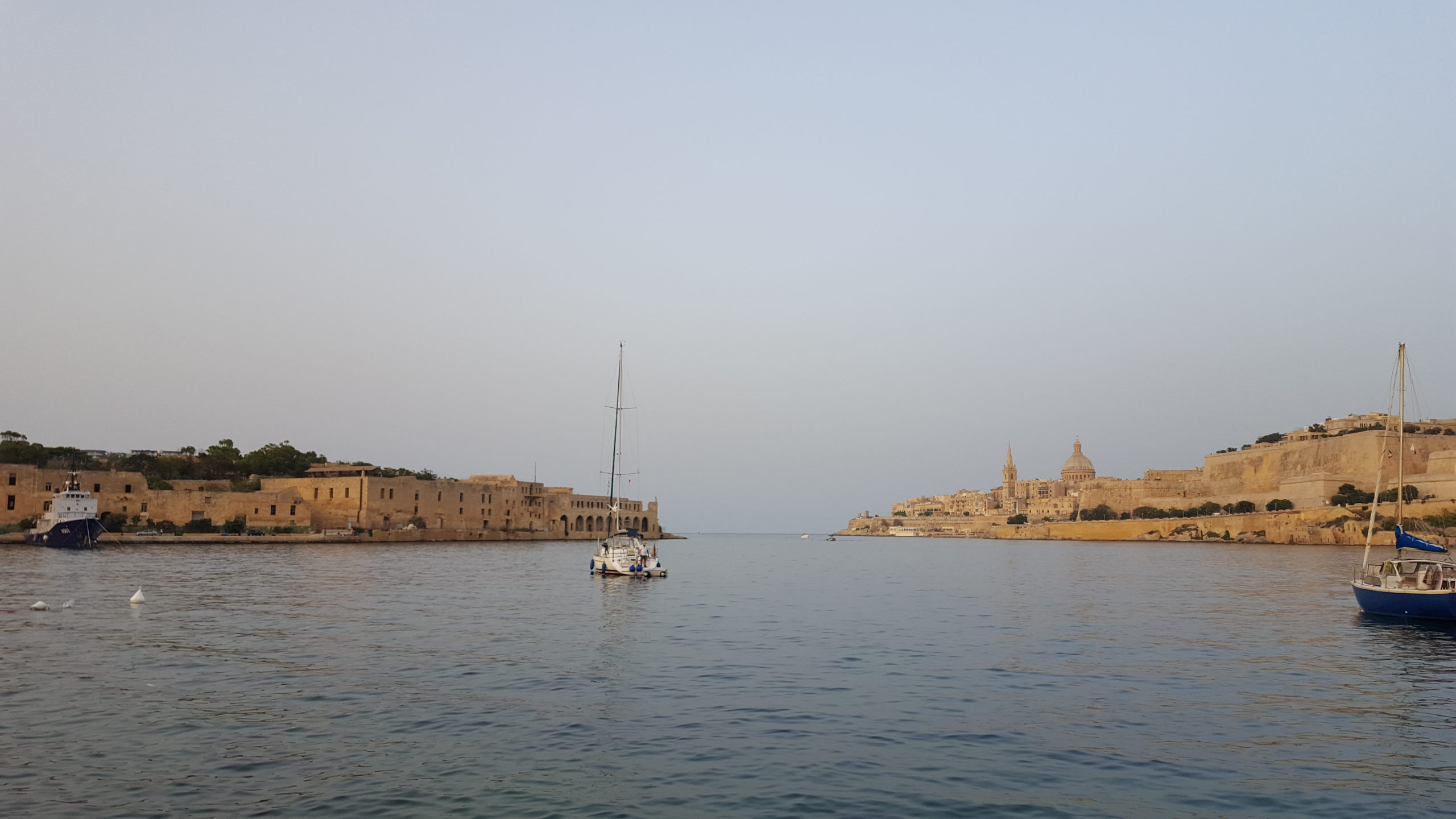by Teresa Anzböck.
In the summer between my 4th and 5th year of medical school, I completed a one-month clinical elective in Paediatrics and Neonatology at Mater Dei Hospital in Msida, Malta. I had different reasons for choosing Malta as the destination for my paediatric elective. In Malta, English is one of two official languages and the main language in the medical field. Lectures at medical school are held in English and all the medical documentation in every hospital has to be done in English. A lot of doctors working at Mater Dei Hospital did their specialty training in the UK and since Malta does not have the necessary resources and specialists for all medical fields, certain surgeries, genetic tests and laboratory investigations are carried out in the UK.

The Mater Dei Hospital is the university hospital of Malta, which attracts doctors from all over the world to work there. In summer it also accommodates a lot of international medical students, which enables not only an exchange with Maltese students but also with students from different medical schools worldwide. I was hoping to get an insight into the medical management on an island as well as the educational system for medical students in Malta. I heard about the differences in the amount of teaching carried out in hospitals between Austria and English-speaking countries which made me really curious. That is why I wanted to get a deeper insight in the daily routine of a foreign university hospital. My expectation of receiving great teaching during my elective was met as the professors on the ward and in the outpatient-clinic enjoyed teaching and presenting interesting cases to us students. Since the main focus for students is on the theoretical education, the main task for medical students is to observe and broaden ones knowledge. The MD course in Malta is based on the British system and lasts only for five years. Practical procedures are mainly learned and trained as a junior doctor during a two-year foundation programme. Besides, the clinical elective in Malta gave me the great opportunity to get in touch with a different culture and to make connections with international medical students that will last a lifetime.
Application

The application process for the elective was uncomplicated thanks to Austrian Medical Students’ Association (AMSA). They offer different exchange programmes for clinical electives, research electives and public health where you can apply online on their homepage. The application process starts each year in autumn with uploading different documents. Every country has their own exchange conditions that need to be met by the student. For Malta I had to hand in a language certificate, CV, proof of enrolment and a letter of recommendation. The period for the elective was set with exact dates. Before the start of the elective, some laboratory tests had to be carried out and a vaccination attestation had to be sent to the hospital by email.
The Institution
Malta has one of the best health care systems in the world. According to the World Health Organisation (WHO), Malta’s health care system is ranked 5th of the World Health Organisation member states for its standard in medical care. The health care system in Malta is publicly funded and entirely free for Maltese citizens. It closely resembles the British system and in fact, a reciprocal agreement for the provision of health care between Britain and Malta exists. The Mater Dei Hospital is the largest hospital in Malta and the only general acute teaching hospital on the island with around 1000 beds. It forms the main entity that provides acute health care services within the Maltese public health care system. The hospital is located next to the university campus of the Faculty of Medicine and Surgery and can easily be reached by foot or bus.
Elective

On the first day of the exchange we were welcomed by Maltese students and received a list of all consultants and their assigned students. Afterwards, the local students showed us around in the university hospital and university area, helped us with our administrative affairs and introduced us to our mentor. Although I followed the same consultant most of the time, I still got the chance to observe other specialised areas within Paediatrics, such as Neurology, Congenital disorders, Infectious diseases and Neonatology. The hierarchy within the Paediatric Department was flat and all consultants were friendly and took the time to answer our questions. Whenever there was some free time between patients, they took the chance to show us interesting patients or talked us through old teaching cases. Although my main task was to observe and learn, I sometimes was able to take over the history taking and
and examination or assist the doctors during procedures. The working hours were from 7.30 to about 13.00 daily and about once a week we had a medical training in the evening which was organised by the students of the Malta Medical Students’ Association (MMSA). Lunch was also organised by the local student association. They offered a few different options to choose from and it had to be picked up daily from a meeting point.
The dress code in the hospital is business casual and private clothes are worn. Like in most South European countries, buildings are cooled down to 20°C at an outside temperature of about 35°C. Therefore, it is advisable to bring an extra sweater to not catch a cold.
Accommodation
The accommodations for exchange students were organised by MMSA and I was picked up from the airport and brought there when I arrived in Malta. I lived in a flat in Msida with four other international medical students, within walking distance from Mater Dei Hospital. We did not have any air conditioning in our apartment, but every room was equipped with a fan.
Leisure Time
The Republic of Malta has a population of 475,000 people and is the 5th smallest country worldwide. With Valletta as the capital, the Republic of Malta also has three inhabited Islands: Malta, Gozo and Comino. As the island is relatively small, the main mode of public transportation is by bus. I would recommend getting a Tallinja card as a cost-effective way of getting around in Malta.
MMSA offers a social programme a few times per week that ranges from cultural trips over beach visits to a boat party and scavenger hunt. The social programme allows medical students who come to Malta for an elective via International Federation of Medical Students’ Associations (IFMSA) to explore the beautiful islands of the Republic of Malta off the beaten track and to experience Maltese traditions and meals. It also allows to get closer in touch with the Maltese lifestyle and culture than the average tourist would.

Insurance
For my stay in Malta I was insured for liability through the Österreichische Hochschülerschaft (ÖH) liability insurance that every student at Medical University Vienna automatically concludes with payment of the ÖH affiliation fee. A confirmation of insurance can be easily requested via E-mail.
Costs for one month
| Flight: | 175€ |
| Food and Drinks: | 200€ |
| Public Transportation: | 25€ |
| Fees for elective: | 450€ |
| Activities (sightseeing, museums, social programme, …) | 150€ |
| Total: | 1000€ |
|---|
Interesting websites
- Austrian Medical Students’ Association
- Malta Medical Students’ Association
- International Federation of Medical Students’ Associations
- Mater Dei Hospital: Official Mater Dei Hospital
- Malta Public Transport: Information about Public Transportation in Malta
- Air Malta: Official website of Air Malta
- Which Beach: Beaches in Malta
- Österreichische Hochschülerschaft: Insurance of Österreichische Hochschülerschaft
Contact
If you have any questions about Teresa Anzböck’s elective, or if you have any questions to Teresa Anzböck personally, please contact the GI-Team. Write an e-mail to media@goinginternational.org – we would be pleased to help you.
Do you have questions regarding the topics working & postgraduate training or finding jobs & career, write an e-mail to Mag. Seitz: office@goinginternational.org

Citation:
Anzböck, Theresa: Clinical Elective in Malta (In: Polak, G. [ed.]: GI-Mail 06/20, ISSN: 2312-0827 Going International, Vienna 2020)
Here you can download this publication.
Published in GI-Mail 06/2021 (German edition).
- Do you already know our monthly newsletter GI-Mail with useful tips on postgraduate courses?
Sign up here. - Are you looking for vacancies or new career challenges? Here you will find the latest vacancies and job offers.
- Are you interested in up to date postgraduate courses and CME? In our education database »medicine & health« you will find new education events from over 2300 organizers.
